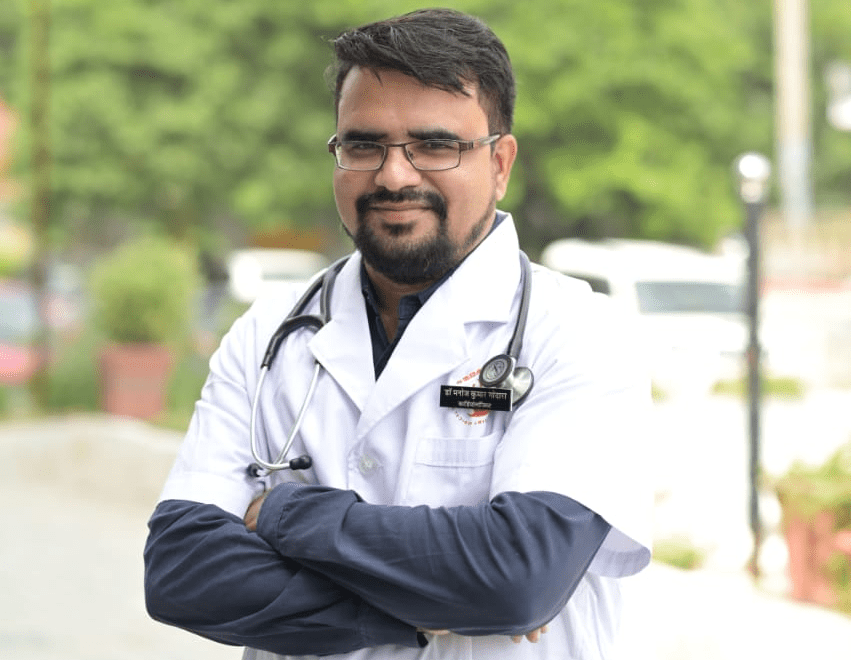Seeking the care of a cardiologist may be done for various reasons, such as managing a known genetic heart condition or exploring possibilities for heart surgery. Cardiologists make up a specialty focused on heart disease prevention and therapy, treating patients with or without symptoms as well as those with current illnesses.
Selecting who to visit is essential and shouldn’t be rushed. The choice of any best cardiologist in Jaipur will depend on several circumstances, but this is particularly true with a medical professional “close to your heart.”
Why Select the Appropriate Cardiologist?
Selecting the proper cardiologist is crucial for the following reasons:
Experience and expertise: A cardiologist with a wealth of knowledge and experience may provide the excellent care and treatment for heart disease. Their ability to recognize symptoms early on and give an accurate diagnosis speeds up therapy and improves results.
Personalized care: A skilled cardiologist will get to know each patient’s medical background, way of life, and risk factors. Treatment plans that are specifically tailored to the patient’s requirements and objectives will be provided by them.
Modern apparatus and technologies: A cardiologist associated with a respectable hospital or medical facility will have access to the most recent tools and technologies to detect and treat heart disease. This can guarantee precise diagnosis and successful therapies.
Communication and trust: A good cardiologist should be someone you feel comfortable talking to and can trust. To make the diagnosis and available treatments understandable to you, they should take the time to explain them. This may foster a sense of confidence and trust in their capacity to provide the finest treatment.
Follow-up and continuing care: A skilled cardiologist will treat a patient first, then continue to monitor their status and modify their treatment plan as necessary.
Availability
Considerations such as the location of your cardiologist’s office and the hospital where they are affiliated are crucial. If you have an active cardiac condition, you may need to see your cardiologist often for annual testing and check-ups. Being accessible without compromising top-notch treatment is something we take great pleasure in, having several community heart and vascular facilities across eastern Pennsylvania and New Jersey.
Obtain Suggestions
Start by consulting your primary care physician’s referral list. You may also get referrals from friends, relatives, and other medical professionals. Spend some time looking over the physicians’ qualifications and background on Healthgrades.com. Make phone calls to each cardiologist on your shortlist and request a consultation appointment so you may meet and speak with them.
Protection From Insurance
Verify again with your insurance provider if the cardiologist of your choice is part of your network of medical professionals. To find out whether the hospital or doctor’s office accepts your insurance, you may also call them.
Commence Talking
After you’ve selected cardiologists who meet your needs regarding accessibility, qualifications, and insurance acceptance, start interacting with people in your neighborhood. You may know someone who has been or is now seeing a cardiologist. Find out what they think of the doctor and the healthcare system that they work in.
Interaction
This component of every patient-doctor connection is crucial. You want to be sure that the responses to your inquiries will be apparent to you. Decisions about your health care must include you. Look for a cardiologist who will consist of you in the team with the same ultimate objective: optimal heart health.
Examine The Credentials Of The Cardiologist
One of the most crucial things to consider is board certification, which attests to the physician’s education, experience, and skill set necessary to provide cardiology-related treatment. Additionally, be sure the cardiologist has never been the subject of disciplinary action or malpractice allegations. On Healthgrades.com and state websites, you may identify the cardiologist’s medical school, training hospital, certifications, malpractice and disciplinary history, and more.
Think About the Cardiologist’s Background
In topics about heart health, experience counts. The more experience a cardiologist has with a particular ailment or procedure, the more likely your treatment will go well. It is also beneficial to receive fellowship training in one or more subspecialties. Find out how many people the cardiologist has treated with your particular issue. Ask the cardiologist how many procedures they have completed and about complication rates, which include complications the doctor has seen and your risk of complications if you are sure you need a particular process.
Examine the Quality of Hospitals
Your hospital is your doctor’s hospital. This is why you should consider the standard of care the hospital provides where the cardiologist treats patients. You care about hospital quality because patients at prestigious hospitals tend to recover more quickly and have fewer difficulties. Two hospitals in the same neighborhood can report very different patient outcomes, so do your homework. Furthermore, think about how vital the hospital’s location is to you. If you have to visit the hospital for diagnostics or treatment, you want the setting to support prompt care rather than undermine it.
Reconsideration
Getting a second opinion from a different medical professional is usually wise when dealing with a potentially severe or life-threatening condition. This is particularly valid when selecting a cardiologist to treat heart disease.
It is advantageous to get a second opinion from a different cardiologist in the following circumstances:
A second opinion can help you make a better-informed decision if your current cardiologist recommends a significant procedure or surgery you are uncomfortable with or uncertain about.
Getting a second opinion from a cardiologist specializing in treating similar conditions can give you essential information and treatment options if your current cardiologist is not very experienced in treating it or does not specialize in treating it.
It can be helpful to get a second opinion if your symptoms are bothersome or you are unsure about the diagnosis accuracy. This will help to ensure that you receive the best possible care.
Conclusion
Selecting and locating the ideal cardiologist in Mansarovar jaipur is essential to maintaining the health of your heart. You now know how to identify and choose the cardiologist who best fits your needs with the aid of this guide. Don’t forget to consider elements like their credentials and experience, their mannerisms and communication style, the facilities and services they provide, and their accessibility and availability. Consulting with a reputable cardiologist can aid in the diagnosis and treatment of your illness as well as offer direction and encouragement for leading a heart-healthy lifestyle.


